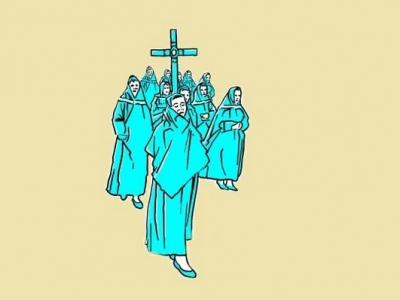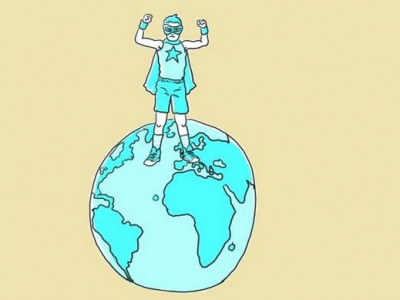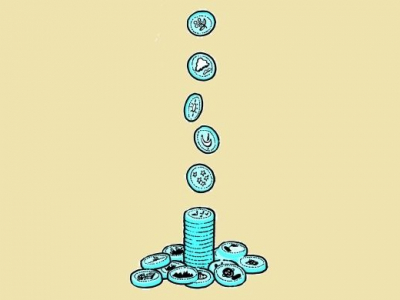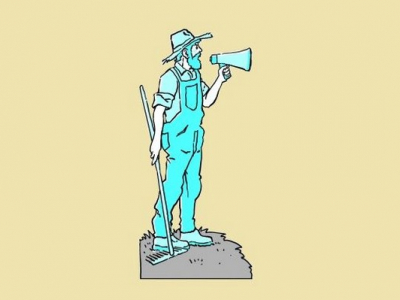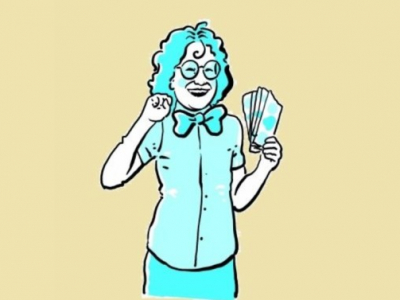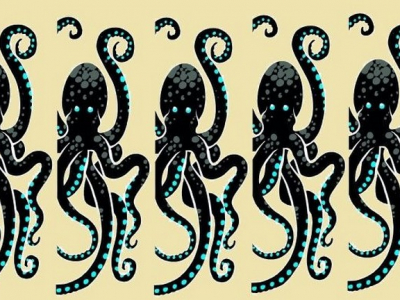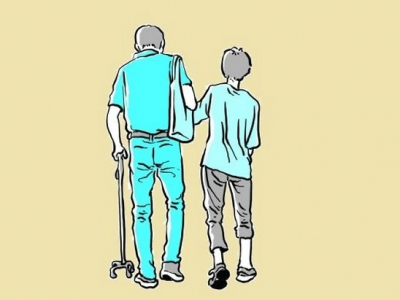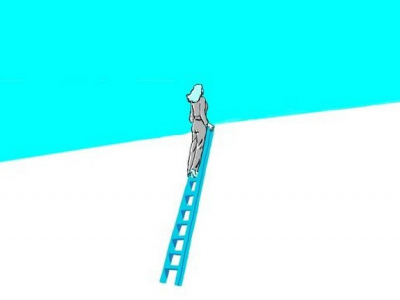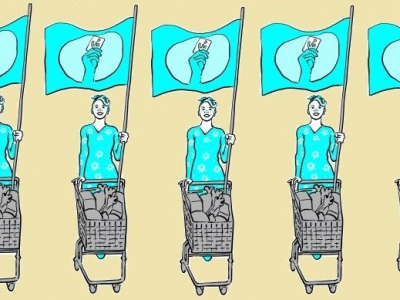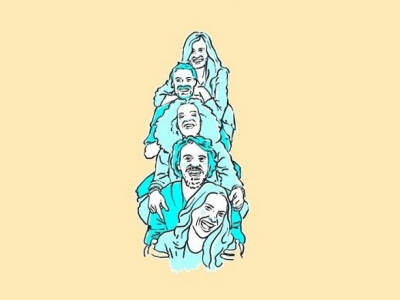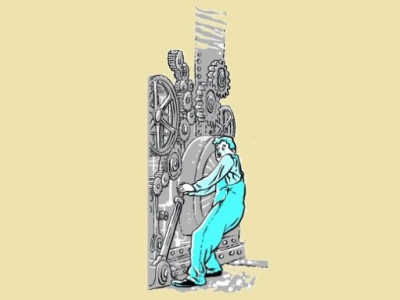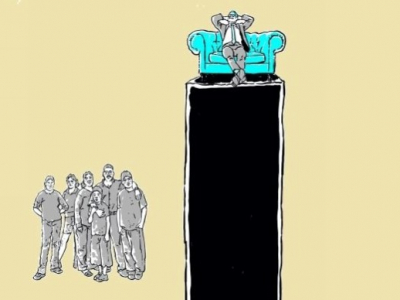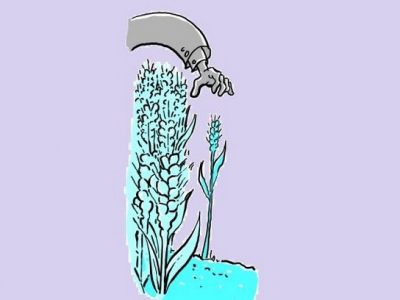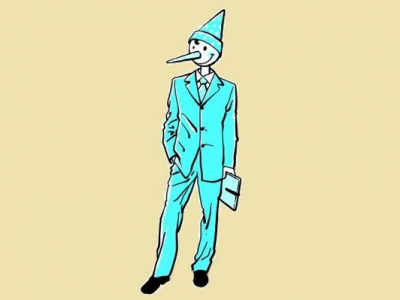stdClass Object
(
[id] => 19786
[title] => Freedom of devotion
[alias] => freedom-of-devotion
[introtext] => Popular piety was an immense collective exercise in subversion, especially of women. It was, in its own way, a wonderful hymn to life, the popular response to theological misconceptions.
by Luigino Bruni
published in Messaggero di Sant'Antonio on 10/06/2024
“At the head of all is God, the master of heaven. This everyone knows. Then comes the prince of Torlonia, owner of the land. Then the prince’s guards come. Then come the prince’s guard dogs. Then nothing. Then, still nothing. Then, still nothing. Then come the peasants. And we can say that it is finished.” (English translation by E. Mosbacher) This is a famous sentence from the Introduction of Ignazio Silone's Fontamara, one of the most beautiful and important novels of 20th century Italy. The word for ‘peasants’ in the original Italian (cafoni) is a word that Silone used in a different meaning from the common one. It was the name of the peasants of the Fucino Plain (in Abruzzo, Italy - the tr.) and, in general, a name by which the writer referred to the oppressed and forgotten of the land. It was a word of pain, certainly, but never used by Silone in a derogatory sense, so as to arouse shame. And yet pain is still a cause of shame today, especially for the poor. My family has known poverty. My grandparents knew it, and its living echo has reached even to me. It is from this echo that my words on poverty, economics and theology come.
[fulltext] =>
The Catholic theology of the past centuries (that of the Counter-Reformation) did not help the poor. The Gospel helped them, sometimes even the Church. But what really helped the poor was popular piety: the statues of Our Lady and of the saints, who for the poor, for women above all, were the only companions in misfortune (martyred saints, the grieving Madonna...) to whom they could turn in the certainty of being truly understood. But theology did not help them; it only made their lives worse. The non-evangelical idea of a God who appreciated human suffering in view of paradise, of a God-the-Father who even wanted the crucifixion of his son to save us (save us from what?). Instead, the poor did everything they could to get their children off the crosses, and thus gave birth in their hearts to another God, the God of piety. Popular piety was an immense collective exercise in subversion, especially of women. It was, in its own way, a wonderful hymn to life, the popular response to theological misconceptions. Popular piety - that of pilgrimages, processions, reinvented Latin prayers... - was the Counter-Reformation of the people; it was the revolutionary and mild response of women to the religion of the theologians and their imagined god.
Poor people could not read prayer books, nor did they have the money to buy them. And so, by a mad scam of Providence, which is always on the side of the poor, common people and women above all, were protected by their illiteracy. Popular piety was a great space of women’s freedom, in a world that remained an experience of servitude for them. In church they pretended to respond to the priests' Latin prayers, but the whispered words that came out of their mouths were different. And, above all, they wept. They prayed with tears and kisses and their hands: wonderful silent prayers, gnarled and worn hands that nevertheless knew how to make wonderful caresses and kiss the statues of the saints, of the Madonna, of the angels and of little children. Caresses and kisses that those women never received from anyone at home, however, in church they gave them endlessly to Christ and the saints; and they truly saved us. Though very unwell, the Catholic faith is still alive thanks to these women who humanised it with their piety, who saved it with their transgression: “In Christian life, piety coincides not so much with asceticism nor with mysticism, not even with devotion or devotions: it coincides with »Charity«, which is the Archive of God's love” (Fr Giuseppe de Luca).
Credits foto: © Giuliano Dinon / Archivio MSA
[checked_out] => 0
[checked_out_time] => 0000-00-00 00:00:00
[catid] => 889
[created] => 2024-06-17 05:28:49
[created_by] => 64
[created_by_alias] => Luigino Bruni
[state] => 1
[modified] => 2024-07-03 17:47:17
[modified_by] => 64
[modified_by_name] => Antonella Ferrucci
[publish_up] => 2024-06-17 05:28:49
[publish_down] => 0000-00-00 00:00:00
[images] => {"image_intro":"","float_intro":"","image_intro_alt":"","image_intro_caption":"","image_fulltext":"","float_fulltext":"","image_fulltext_alt":"","image_fulltext_caption":""}
[urls] => {"urla":false,"urlatext":"","targeta":"","urlb":false,"urlbtext":"","targetb":"","urlc":false,"urlctext":"","targetc":""}
[attribs] => {"article_layout":"","show_title":"","link_titles":"","show_tags":"","show_intro":"","info_block_position":"","info_block_show_title":"","show_category":"","link_category":"","show_parent_category":"","link_parent_category":"","show_associations":"","show_author":"","link_author":"","show_create_date":"","show_modify_date":"","show_publish_date":"","show_item_navigation":"","show_icons":"","show_print_icon":"","show_email_icon":"","show_vote":"","show_hits":"","show_noauth":"","urls_position":"","alternative_readmore":"","article_page_title":"","show_publishing_options":"","show_article_options":"","show_urls_images_backend":"","show_urls_images_frontend":"","helix_ultimate_image":"images\/2024\/06\/14\/Devozione@MSA_ant.jpg","helix_ultimate_image_alt_txt":"","spfeatured_image":"images\/2024\/06\/14\/Devozione@MSA_ant.jpg","helix_ultimate_article_format":"standard","helix_ultimate_audio":"","helix_ultimate_gallery":"","helix_ultimate_video":"","video":""}
[metadata] => {"robots":"","author":"","rights":"","xreference":""}
[metakey] =>
[metadesc] =>
[access] => 1
[hits] => 1015
[xreference] =>
[featured] => 1
[language] => en-GB
[on_img_default] => 0
[readmore] => 2711
[ordering] => 116
[category_title] => EN - MSA
[category_route] => economia-civile/it-editoriali-vari/it-msa
[category_access] => 1
[category_alias] => en-msa
[published] => 1
[parents_published] => 1
[lft] => 77
[author] => Luigino Bruni
[author_email] => ferrucci.anto@gmail.com
[parent_title] => IT - Editoriali vari
[parent_id] => 893
[parent_route] => economia-civile/it-editoriali-vari
[parent_alias] => it-editoriali-vari
[rating] => 0
[rating_count] => 0
[alternative_readmore] =>
[layout] =>
[params] => Joomla\Registry\Registry Object
(
[data:protected] => stdClass Object
(
[article_layout] => _:default
[show_title] => 1
[link_titles] => 1
[show_intro] => 1
[info_block_position] => 0
[info_block_show_title] => 1
[show_category] => 1
[link_category] => 1
[show_parent_category] => 1
[link_parent_category] => 1
[show_associations] => 0
[flags] => 1
[show_author] => 0
[link_author] => 0
[show_create_date] => 1
[show_modify_date] => 0
[show_publish_date] => 1
[show_item_navigation] => 1
[show_vote] => 0
[show_readmore] => 0
[show_readmore_title] => 0
[readmore_limit] => 100
[show_tags] => 1
[show_icons] => 1
[show_print_icon] => 1
[show_email_icon] => 1
[show_hits] => 0
[record_hits] => 1
[show_noauth] => 0
[urls_position] => 1
[captcha] =>
[show_publishing_options] => 1
[show_article_options] => 1
[save_history] => 1
[history_limit] => 10
[show_urls_images_frontend] => 0
[show_urls_images_backend] => 1
[targeta] => 0
[targetb] => 0
[targetc] => 0
[float_intro] => left
[float_fulltext] => left
[category_layout] => _:blog
[show_category_heading_title_text] => 0
[show_category_title] => 0
[show_description] => 0
[show_description_image] => 0
[maxLevel] => 0
[show_empty_categories] => 0
[show_no_articles] => 1
[show_subcat_desc] => 0
[show_cat_num_articles] => 0
[show_cat_tags] => 1
[show_base_description] => 1
[maxLevelcat] => -1
[show_empty_categories_cat] => 0
[show_subcat_desc_cat] => 0
[show_cat_num_articles_cat] => 0
[num_leading_articles] => 0
[num_intro_articles] => 14
[num_columns] => 2
[num_links] => 0
[multi_column_order] => 1
[show_subcategory_content] => -1
[show_pagination_limit] => 1
[filter_field] => hide
[show_headings] => 1
[list_show_date] => 0
[date_format] =>
[list_show_hits] => 1
[list_show_author] => 1
[list_show_votes] => 0
[list_show_ratings] => 0
[orderby_pri] => none
[orderby_sec] => rdate
[order_date] => published
[show_pagination] => 2
[show_pagination_results] => 1
[show_featured] => show
[show_feed_link] => 1
[feed_summary] => 0
[feed_show_readmore] => 0
[sef_advanced] => 1
[sef_ids] => 1
[custom_fields_enable] => 1
[show_page_heading] => 0
[layout_type] => blog
[menu_text] => 1
[menu_show] => 1
[secure] => 0
[helixultimatemenulayout] => {"width":600,"menualign":"right","megamenu":0,"showtitle":1,"faicon":"","customclass":"","dropdown":"right","badge":"","badge_position":"","badge_bg_color":"","badge_text_color":"","layout":[]}
[helixultimate_enable_page_title] => 1
[helixultimate_page_title_alt] => Messaggero di S. Antonio
[helixultimate_page_subtitle] => Civil Economy
[helixultimate_page_title_heading] => h2
[page_title] => Messaggero di S. Antonio
[page_description] =>
[page_rights] =>
[robots] =>
[access-view] => 1
)
[initialized:protected] => 1
[separator] => .
)
[displayDate] => 2024-06-17 05:28:49
[tags] => Joomla\CMS\Helper\TagsHelper Object
(
[tagsChanged:protected] =>
[replaceTags:protected] =>
[typeAlias] =>
[itemTags] => Array
(
[0] => stdClass Object
(
[tag_id] => 23
[id] => 23
[parent_id] => 1
[lft] => 43
[rgt] => 44
[level] => 1
[path] => msa
[title] => Le virtù del mercato, MSA
[alias] => msa
[note] =>
[description] =>
[published] => 1
[checked_out] => 0
[checked_out_time] => 0000-00-00 00:00:00
[access] => 1
[params] => {"tag_layout":"","tag_link_class":"label label-info"}
[metadesc] =>
[metakey] =>
[metadata] => {"author":"","robots":""}
[created_user_id] => 609
[created_time] => 2019-01-05 16:12:28
[created_by_alias] =>
[modified_user_id] => 609
[modified_time] => 2020-08-01 12:25:36
[images] => {"image_intro":"","float_intro":"","image_intro_alt":"","image_intro_caption":"","image_fulltext":"","float_fulltext":"","image_fulltext_alt":"","image_fulltext_caption":""}
[urls] => {}
[hits] => 22759
[language] => *
[version] => 1
[publish_up] => 2019-01-05 15:12:28
[publish_down] => 2019-01-05 15:12:28
)
)
)
[slug] => 19786:freedom-of-devotion
[parent_slug] => 893:it-editoriali-vari
[catslug] => 889:en-msa
[event] => stdClass Object
(
[afterDisplayTitle] =>
[beforeDisplayContent] =>
[afterDisplayContent] =>
)
[text] => Popular piety was an immense collective exercise in subversion, especially of women. It was, in its own way, a wonderful hymn to life, the popular response to theological misconceptions.
by Luigino Bruni
published in Messaggero di Sant'Antonio on 10/06/2024
“At the head of all is God, the master of heaven. This everyone knows. Then comes the prince of Torlonia, owner of the land. Then the prince’s guards come. Then come the prince’s guard dogs. Then nothing. Then, still nothing. Then, still nothing. Then come the peasants. And we can say that it is finished.” (English translation by E. Mosbacher) This is a famous sentence from the Introduction of Ignazio Silone's Fontamara, one of the most beautiful and important novels of 20th century Italy. The word for ‘peasants’ in the original Italian (cafoni) is a word that Silone used in a different meaning from the common one. It was the name of the peasants of the Fucino Plain (in Abruzzo, Italy - the tr.) and, in general, a name by which the writer referred to the oppressed and forgotten of the land. It was a word of pain, certainly, but never used by Silone in a derogatory sense, so as to arouse shame. And yet pain is still a cause of shame today, especially for the poor. My family has known poverty. My grandparents knew it, and its living echo has reached even to me. It is from this echo that my words on poverty, economics and theology come.
[jcfields] => Array
(
)
[type] => intro
[oddeven] => item-odd
)
